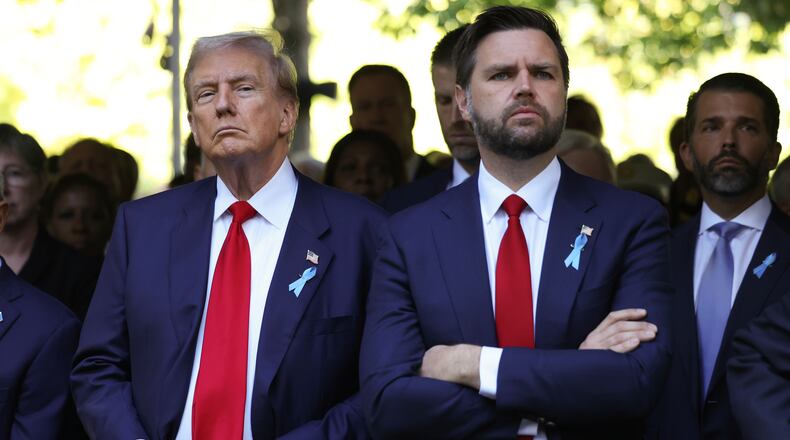“No one is above the law, including a former president or sitting officials. The defendants’ reckless and defamatory conduct has endangered the lives of Haitian migrants across the United States,” plaintiffs’ lawyer Ralph Francois said in the release.
Defendants include former President Donald Trump and his current running mate U.S. Sen. JD Vance, Donald Trump Jr., X owner Elon Musk, X for its hosting of the claims, Ohio Attorney General Dave Yost, U.S. Senate candidate Bernie Moreno, the state of Ohio and Louisiana Rep. Clay Higgins.
The lawsuit accuses the defendants of defamation per se, in which there is a presumption that the false statement harmed the plaintiff’s reputation; defamation; aiding and abetting violence; slander; negligent infliction of emotional distress; intentional infliction of emotional distress; inciting violence against another; harassment; and civil conspiracy to violate plaintiffs’ equal protection rights; civil conspiracy to violate plaintiffs’ civil rights.
The News-Sun reached out, but did not immediately receive comments on the lawsuit from the Trump/Vance campaign, Yost or Moreno.
In interviews, on social media and during a presidential debate, Trump and Vance — who the lawsuit names as a “ringleader” — amplified claims that Haitian immigrants in Springfield were eating residents’ pet cats and dogs. Local police, as well as city and county officials, have repeatedly said those claims are baseless.
After the claims spread nationally, via Trump, Vance and thousands of others, Springfield institutions started getting threats of violence — including schools, government offices, hospitals and businesses. Ohio Gov. Mike DeWine said many of the threats came from overseas, while others were from domestic sources.
The lawsuit says that statements about Haitian immigrants eating pets are not protected speech, but are hate speech “designed to defame, and put the lives of Haitian migrants in danger.”
The lawsuit details Trump’s “racial animus against Haitian immigrants” for years, including when he allegedly said that Haitians “all have AIDS” in 2017, and referring to Haiti and other “predominantly non-white countries” in a denigrating way (”expletive countries”)..
According to the News-Sun’s reporting, a social media post originally from a Springfield Facebook group went viral nationally in early September. The original poster did not cite first-hand knowledge of an incident. Instead they claimed that their neighbor’s daughter’s friend had lost her cat and found it hanging from a branch at a Haitian neighbor’s home, carved up to be eaten.
Police said there were no credible reports of such behavior.
The lawsuit says Vance was told on Sept. 9 that the rumor was false, as reported by the Wall Street Journal. It says he “still has not backed off” since then, even after death and bomb threats targeted Springfield.
ODIHA and HDPAC said in the lawsuit that unless the defendants stop defaming and violating Haitian immigrants’ civil rights, they “will be immediately and irreparably harmed.”
The lawsuit seeks a judge to find the statements caused irreparable injuries, violated the plaintiffs’ civil rights and put their lives in danger. It asks for monetary damages for economic damages coming from the defendants’ actions, compensatory damages for emotional distress and for civil rights violations, court costs and “such other further relief as may be just and proper.”
About the Author

